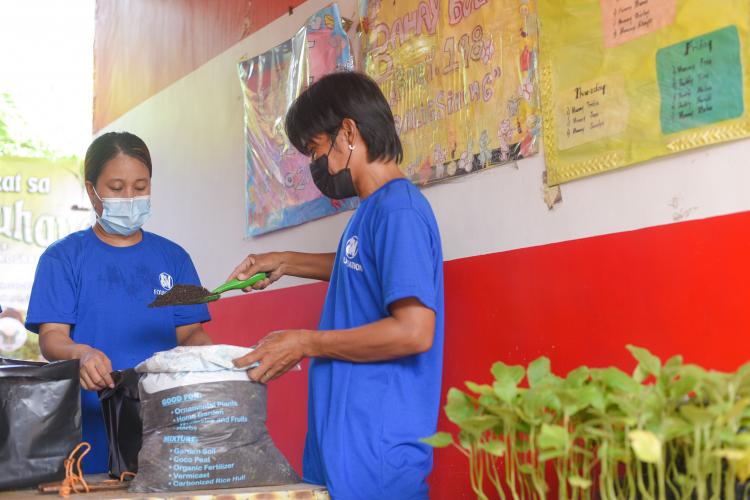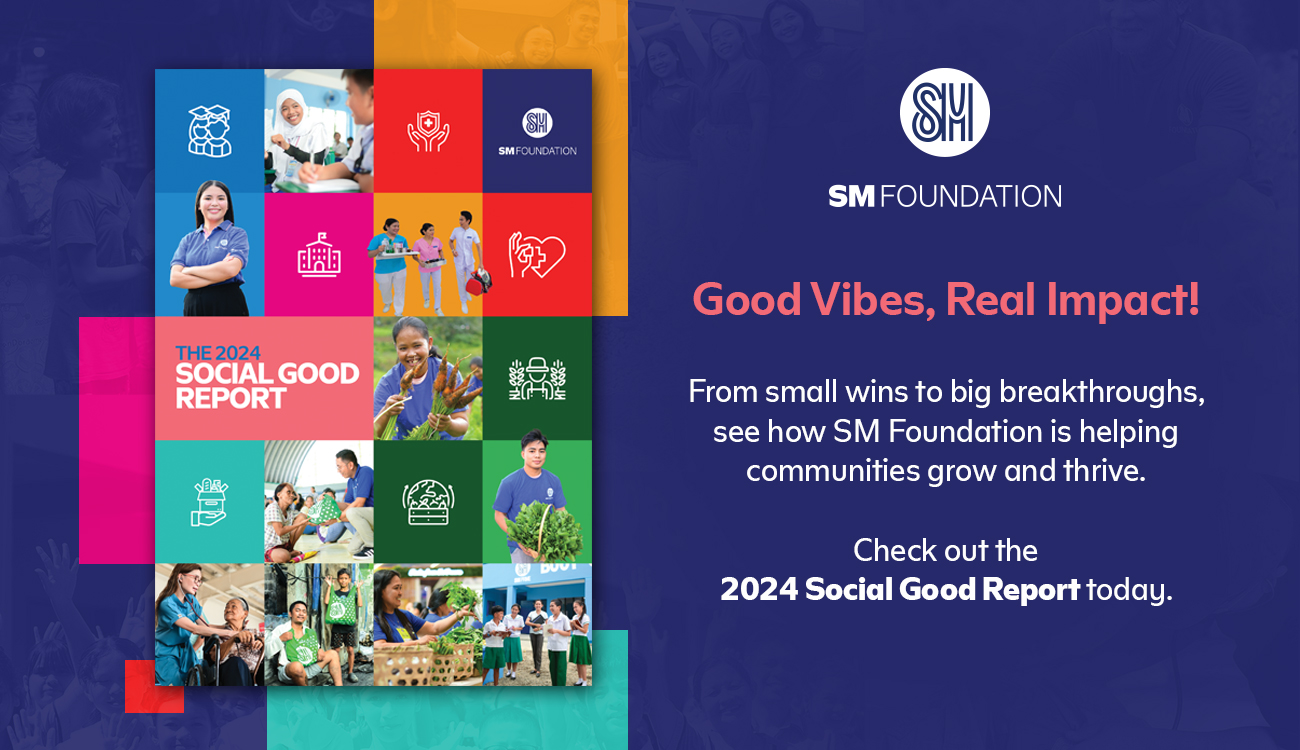Sustainable agriculture: key to achieving food security in urban communities

SMFI KSK farmers set up their urban farm space where they will practice the various sustainable agriculture techniques that they will learn from the program.
The future of food security lies greatly on sustainable agriculture. It is a given that practicing sustainable agriculture in the urban areas comes a bit harder compared in the rural zones because of the availability of land for farming.
While it is true that a healthy, spacious land plays a vital role in attaining sustainable agriculture, our urban dwellers need not to worry as various farming techniques and innovations are currently available to augment their resources in farming.
It is in this light that the SM Prime Holdings (SMPH), through SM Foundation (SMFI), recently mobilized its efforts to bring the SMFI’s Kabalikat Sa Kabuhayan (KSK) on Sustainable Agriculture program to 50 Pasay City residents.
The said beneficiaries are mostly made up of members of the Pantawid Pamilyang Pilipino Program (4Ps) in Pasay City. The KSK program aims to equip farmer-participants with knowledge and skills on modern urban farming techniques that will allow them to bring food on their tables and eventually, enable them to establish their own agri-enterprises.
Aside from the agri training, the trainees will also be assisted in creating markets through various SM Business Units and government agencies.
This effort was also made possible through a sustained social good collaboration with the City Government of Pasay, Technical Education and Skills Development Authority (TESDA), Department of Agriculture (DA), Department of Social Welfare and Development (DSWD), and the Department of Trade and Industry (DTI).
Growing together with its host communities
Speaking before the farmer-participants and representatives of its partner organizations through a virtual platform, SMFI Trustee Engr. Ramon Gil Macapagal underscored the Foundation’s goal and ambition for its host communities: “Palagi naming inaasam sa SM Foundation ang ganitong panahon na aming maisusulong sa ating komunidad ang isang programang gaya nito pong KSK. Kami ay may ambisyon na tayo ay umunlad sa pamamagitan ng ating likas kaya na pamamaraan.”
Macapagal also highlighted how SM sees the significance of growing the business together with its host communities, “Ang gusto po natin ay tayo ay lumago na kung saan ang SM ay makapagdaragdag ng benepisyo sa ating lipunan. Gusto po naming lumago sa pamamaraan na ang ating bansa ay makapagpo-produce ng mga mamamayan na handa sa kanilang mga haharapin sa buhay.”
He further explained that aside from the KSK program, SM through its corporate social arm—SM Foundation—reaches its host communities by its social good programs focused on education, health and wellness, and disaster response.
Corporate Social Responsibility (CSR) like those implemented by SM Foundation is becoming increasingly relevant as an inclusive development tool for businesses, especially in areas where they operate or “host communities.”
For companies such as SM, being a responsible corporate citizen is the bedrock of the strong relationship that they sustain with their host communities. And to achieve this, the company maintains constant community dialogues. They also work collaboratively with communities and stakeholder leaders over the life of their social good projects.
“Kami ay lubos na nagpapasalamat sa pagkakataong ibinigay sa amin para dalhin ang programang ito sa Pasay. Naway makapagdulot ito, hindi lamang ng pagkain sa hapag kainan ng bawat residente ng Pasay kundi pati karagdagang kabuhayan. Makakaasa kayo na patuloy kaming makikipagtulungan sa inyong local na pamahalaan upang makamit natin ang kaunlaran,” Macapagal concluded.
The KSK program complements Pasay City's Urban Farm tourism program that intends to promote a clean and green Pasay City through various urban farming methods like vertical and plastic container gardening by showcasing successful "greening" projects at the barangay level.
SM’s Kabalikat Sa Kabuhayan (KSK) Farmers’ Training Program aims to bring modern and sustainable farming skills in both rural and urban communities to help farmers have food on their table and have potential economic opportunities. To date, the program has trained more than 28,100 farmers from more than 900 cities/municipalities nationwide.
